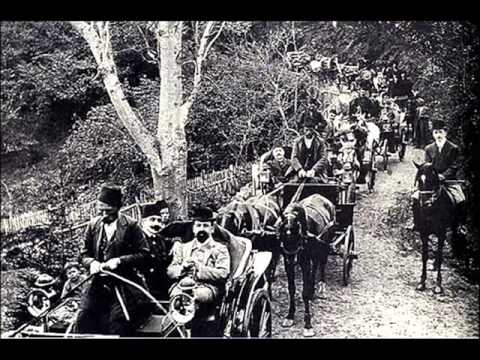By Very Reverend Nektarios Cottros, Presiding Priest, Saint George Church, Piscataway, NJ, Metropolis of New Jersey
Special to the Hellenic News of America
The month of May always brings to mind two very tragic events in the life of the Hellenic peoples, throughout the world. The first of these two horrible anniversaries falls on May 29th: the Anniversary of the Fall of Constantinople. The second remembrance, which is somewhat less known to most people, is the commemoration of the Pontian Genocide, which is remembered every year on May 19th. Both of these events have had incredible impacts upon the conscience of the Greek people and are both examples of the lack of humanity among certain mindsets.
Let us look at the City of Constantine, Constantinople, or as it was named, New Rome. It was the capital city of the Holy Roman Empire, from 330 until 1453, and was situated in the town of Byzantium, between the Golden Horn and the Sea of Marmara. Soon after its inauguration as the “Queen City,” by Emperor Constantine the Great, who moved the capital there, from Rome, it became the largest and wealthiest city in Europe, and was protected by massive walls, which proved effective for centuries. Unfortunately, after being weakened by the Crusades, Constantinople’s defense had been brought down to a very low point, militarily, economically, and psychologically. The years of trying to keep the City safe from invaders had brought about low morale.
Under such conditions, the Ottoman Sultan Mehmet grabbed the opportunity to break through the fortress, after many days of battle, on May 29, 1453. Days of ransacking, rape, murder, and destruction continued until Sultan Mehmet put an end to it. Thus, the Holy Roman Empire was brought to an end. Afterward, the Greek people became slaves to the Ottomans, with invaders still governing the Queen City.
Unfortunately, another dark reminder of mankind’s egocentric desire to exercise free will towards the detriment of others is found in another tragic event in history… modern history. May 19th of every year has become the commemoration of the Pontian Genocide. One must keep in mind that the Pontian Genocide set the stage for the Great Catastrophe, in Asia Minor. However, there are many countries that do not recognize this commemoration, nor even admit to the existence of the Genocide, and even claim that the Great Catastrophe was orchestrated by the Greeks.
Pontos, for those who are not familiar, is an area found along the Black Sea (Εὔξεινος Πόντος). The first inhabitants are said to have been Ionian Greeks, from the area of Attica. Records show that the Greeks inhabited the area from ancient times. The Pontians were known to be well-educated and progressive. Records show that by the mid-1800s, there were more than 100 schools, as well as countless newspapers, based in Pontos.
To understand the Pontian Genocide, one must understand, first, the conditions of the world, during the early 1900s. As noted earlier, the Holy Roman Empire was conquered by the Ottomans. They continued to rule the area of the eastern Mediterranean (Syria, Lebanon, Palestine, Jordan, most of the Middle East), Northern Africa, present-day Turkey, Greece, Albania, Bulgaria, Romania, Serbia, and all the way to Vienna. The years of the Ottoman occupation were years that produced many martyrs of the Orthodox faith. The Ottomans ruled with an iron fist. But, as in the case, oftentimes, of the egotistical, the return trip from the road to success is often short.
By the end of the 1800s, the Ottoman Empire had lost its power and domain over most of its conquered territories. Unrest was found all over the world. The Ottoman government was afraid of losing the area of Pontos, and possibly Asia Minor, as well, as it had already lost most of Greece, Serbia, Albania, and Bulgaria. In the midst of this, in the early 1900s, a movement arose from within the ranks of the military, which was known as the Committee of Union and Progress, or the “Young Turks,” whose party line was one of pro-Turkish nationalism and the “Turkification” of the Christian minorities, which ultimately resulted in the elimination of the majority of members of those communities. In the spring of 1914, the “Young Turks” began the process of “deporting” the Christian inhabitants of cities and towns in Eastern Thrace and Asia Minor. In the meantime, Christian men were being sent to labor camps in the Turkish interior to build infrastructure, often never returning home.
In 1916, the CUP, now under the leadership of a young military officer, Mustafa Kemal, stepped up the program of ethnic cleansing by increasing the deportations, which in reality were death marches, and hundreds of Greek villages in Pontos were pillaged, looted, and burned. By September of 1921, the process included trumped-up charges of treason against Greeks, with execution being the verdict.
Unfortunately, while all of this was going on, and reports were being made to the governments of the West, nothing was ever done to stop the efforts of the nationalist force. The result is the loss of possibly over 1 million lives of Greek Orthodox Christians… may their memories be eternal!







